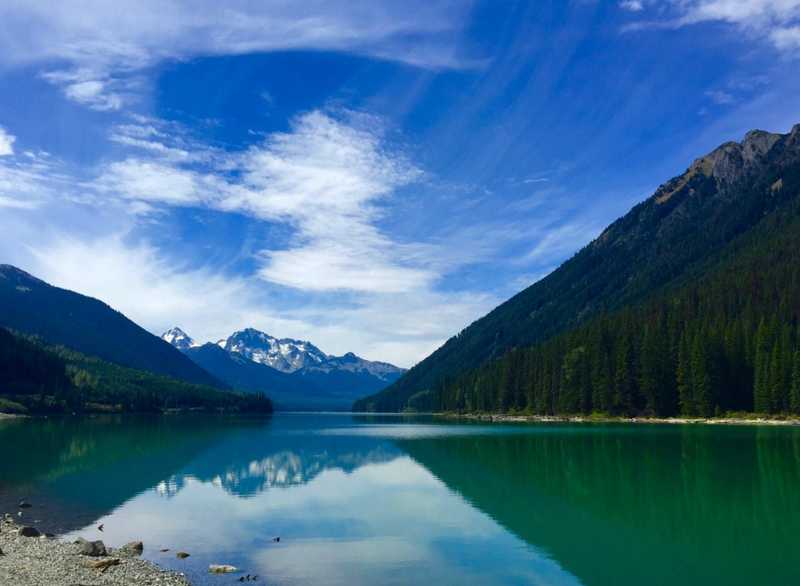On Sunday, Feb. 5, residents and eager marijuana business owners in British Columbia (B.C.) learned more about the province's plans for adult-use cannabis when it becomes legal nationwide.
Some of the regulations announced by Solicitor General Mike Farnworth align with those set out by the federal government and were, on the whole, expected. Others deviate from the federal guidelines—and even from what citizens expected.
Buying & Carrying Cannabis in British Columbia
B.C.'s initial plan for legalization rollout touched on rules around the purchase and transportation of marijuana, but Farnworth has now elaborated on these points.
Licensed retailers in urban areas will sell cannabis and cannabis accessories, and nothing else—no food, alcohol, gas, garments or lottery tickets. Rural retailers of non-medical cannabis will have some room for exceptions but not regarding the liquor rule. The two items may be sold next door to each other, but not in a single store, also known as “co-location.”
Adults 19 years old or older can possess and carry up to 30 grams of cannabis. Anyone under 19 may not be in possession of any non-medical marijuana. And, if being transported by car, cannabis must be in a sealed package or inaccessible to the vehicle’s occupants, similar to carrying alcohol.
Vancouver and Victoria are already setting up licensing protocol, but no word yet on whether the existing marijuana dispensaries will be able to transition into legal, licensed establishments.
Smoking Marijuana in Public Places: Allowed in Some Circumstances
Smoking marijuana is allowed in public spaces where tobacco smoking and vaping are permitted, unless they’re areas frequented by kids. Though public smoking laws differ between provinces, B.C.’s smoking ban includes workplaces, restaurants, bars, casinos and doorways, as well as smoking in cars with underage passengers. Municipalities are free to create more stringent public smoking laws at their discretion.
Drug-Impaired Driving: Illegal & Enforceable
Drug-impaired driving is already illegal all over Canada, but the B.C. provincial government says it will increase law enforcement and provide new training and tools for the detection of drug-impaired driving.
Fully licensed drivers caught impaired by drugs will be banned from driving for 90 days—called an administrative driving prohibition (ADP)—to remove high-risk drivers from the road. New drivers still working through the Graduated Licensing Program (GLP) won't get such a break; if they test positive for the presence of tetrahydrocannabinol (THC), they could be subject to additional punishments including starting the program over from the beginning.
Personal Cannabis Cultivation: Up to 4 Plants Allowed
In alignment with the federal cannabis cultivation law, B.C. will allow up to four cannabis plants per household, as long as they aren't visible to the public or in homes licensed for daycare.
Unfortunately for renters, landlords and strata councils can veto home cultivation, but whether they can do this on a lease that’s already in-play is undecided. Also still up in the air are the rules around how new lease and insurance rules may affect medicinal marijuana growers.
Licensed Producers: Limited in Their Enterprise Abilities
B.C. is considered the west coast epicentre of Canadian cannabis—it has been well before the plant became legal for medicinal use. Even now, the province comprises Canada’s largest illegal marijuana market. But some of the ordinances defy the province's cannabis-friendly attitude.
Pro-legalization advocates are happy about not having cannabis sold with liquor—unlike private liquor retailers and unionized public liquor store workers who campaigned for co-location—but they still have some reservations about the fine print regarding how marijuana businesses will be licensed.
There’s no ceiling on the number of retail licences issued, but licensed producers—the businesses allowed to grow, harvest, dry, trim, cure and package cannabis—can't run stores. It's like telling a craft brewery that they can't have their own tap house. And it's no surprise that lawmakers are experiencing pushback on the decision from the cannabis community.
Kirk Tousaw, a prominent cannabis policy reform lawyer, says these sort of direct-to-consumer sales should be allowed.
Implementation of these laws and more will occur via multiple bills during the upcoming legislative session. B.C. is still colouring in the details surrounding the regulation and retail of non-medical marijuana, but lawmakers are clear that it will take some time before the cement sets around these rules. Legalization, whenever it occurs in 2018, is only the beginning.
Photo credit: Kristopher Kinsinger
